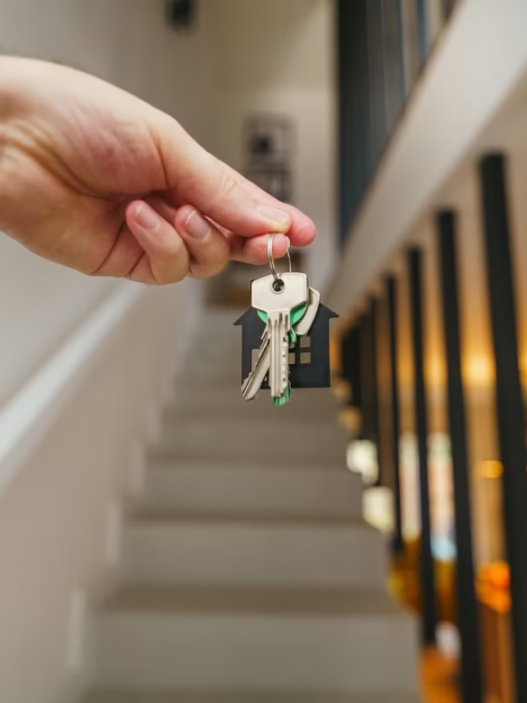Couples therapy, also known as marriage therapy, aims to improve the relationship between partners through various therapeutic approaches. Each method offers unique techniques designed to address specific issues, such as communication breakdowns, intimacy concerns, and conflict resolution. Understanding the types of therapy available and their associated costs can help couples make informed decisions about their mental health support.
Table of Contents:
- Types of Couples Therapy
- Couples Therapy Cost in Canada
- Cost Variables for Couples Therapy
- Additional Costs and Procedures
- Funding & Financing Options
- Types of Mental Health Professionals
👨🏻⚕️ Types of Couples Therapy
Couples therapy, also known as marriage therapy, encompasses a variety of therapeutic approaches aimed at improving the relationship between partners. Each type of couples therapy offers unique techniques and frameworks designed to address specific issues that couples may face, such as communication breakdowns, intimacy concerns, and conflict resolution. Understanding these different approaches can help couples select the therapy that best aligns with their needs.
- Emotionally Focused Therapy (EFT) is a structured approach developed by Dr. Sue Johnson, focusing on the emotional bonds between partners. EFT operates on the premise that secure emotional attachment is fundamental to healthy relationships. In this therapy, couples work with a trained therapist to identify negative patterns of interaction that contribute to distress. The therapist facilitates discussions that encourage partners to express their vulnerabilities and emotional needs openly. By fostering understanding and empathy, EFT aims to help couples develop a stronger emotional connection, ultimately transforming their interactions into more supportive and nurturing exchanges. This approach has proven particularly effective for couples facing conflicts, communication issues, or feelings of disconnection.
- Gottman Method, developed by Dr. John Gottman, is grounded in extensive research on relationship dynamics and what makes couples thrive. This method emphasizes the importance of building a solid foundation of friendship, respect, and emotional intimacy. Couples learn to identify and combat the “Four Horsemen” of relationship breakdown—criticism, contempt, defensiveness, and stonewalling. The therapy process includes teaching specific skills for effective communication, conflict resolution, and expressing appreciation. The Gottman Method is well-suited for couples looking to enhance their relationship by providing practical tools and insights that promote a healthier dynamic. It encourages partners to appreciate each other’s strengths and foster a deeper emotional bond, leading to improved satisfaction and longevity in the relationship.
- Cognitive-Behavioral Therapy (CBT) is a widely used approach that examines the interplay between thoughts, feelings, and behaviors. In the context of couples therapy, CBT helps couples identify and alter negative thought patterns that may contribute to relationship issues. Couples work with a therapist to understand how their beliefs and assumptions influence their emotional responses and interactions with one another. By challenging irrational thoughts and replacing them with healthier perspectives, partners can learn to communicate more effectively and develop better coping strategies. CBT is particularly beneficial for couples dealing with specific challenges, such as anxiety, depression, or stress, as it equips them with practical skills to enhance their relationship dynamics while addressing individual concerns.
- Imago Relationship Therapy, founded by Dr. Harville Hendrix, is based on the idea that individuals often seek partners who reflect traits of their caregivers from childhood. This therapy emphasizes understanding how these unconscious patterns influence adult relationships. Couples engage in structured dialogues facilitated by a therapist, which allows them to express their feelings and experiences while fostering empathy and connection. The therapist guides the process to help partners recognize how their past shapes their present interactions, encouraging them to develop healthier patterns of communication and emotional support. Imago therapy is particularly effective for couples looking to deepen their emotional connection and resolve longstanding issues by promoting understanding and compassion.
- Integrative Behavioral Couples Therapy (IBCT) combines traditional behavioral therapy with an emphasis on emotional acceptance. Developed by Dr. Neil Jacobson and Dr. Andrew Christensen, IBCT acknowledges that behavioral changes are essential but also highlights the importance of accepting each other’s differences. In therapy sessions, couples work with a therapist to identify problematic behaviors while learning to understand and appreciate each other’s unique traits. This dual focus on change and acceptance helps couples navigate conflicts more effectively and fosters emotional closeness. IBCT is especially beneficial for couples experiencing ongoing disagreements, as it provides them with tools to balance the need for change with the cultivation of compassion and understanding.
- Solution-Focused Brief Therapy (SFBT) is a goal-oriented approach that emphasizes finding solutions rather than dwelling on problems. This method encourages couples to identify their strengths and resources to achieve their desired relationship outcomes. During SFBT sessions, therapists guide couples in envisioning their preferred future and setting specific, attainable goals. The therapy focuses on exploring what is working well in the relationship and building on those strengths to address challenges. SFBT is typically shorter in duration than other therapeutic approaches, making it an appealing option for couples seeking immediate improvements in their relationship dynamics. This approach empowers partners to actively engage in creating positive change and fosters a sense of agency in their relationship.
🧾 Couples Therapy Cost in Canada
In Canada, the average cost of a couples therapy session may range between $65 to $175 by province. Below are example costs from major provinces in Canada:
- In Alberta, the average cost of a couples therapy session is $175
- In British Columbia, the average cost of a couples therapy session is $173
- In Manitoba, the average cost of a couples therapy session is $115
- In Ontario, the average cost of a couples therapy session is $175
- In Quebec, the average cost of a couples therapy session is $170
- In Saskatchewan, the average cost of a couples therapy session is $175
It is important to consider ancillary costs that may be necessary in addition to the initial hearing assessment.
Our Good Caring Canada research team estimated the cost ranges based on market insights, patient reports, publicly available data sources, suggested fees from professional associations, and listed reasonable and customary fees from insurance providers.
🔎 Cost Variables for Couples Therapy
The cost of couples therapy can vary significantly based on several factors that influence pricing. Understanding these variables is essential for couples seeking therapeutic support, as it enables them to anticipate expenses and make informed decisions about their care. Below are key factors that can impact the cost of couples therapy in Canada.
- Therapy Type: The specific approach or modality used in couples therapy can affect session costs. Various therapeutic models, such as Emotionally Focused Therapy (EFT), the Gottman Method, Cognitive-Behavioral Therapy (CBT), and Imago Relationship Therapy, may have different pricing structures based on their complexity and the training required for the therapist. For instance, therapists who specialize in evidence-based methods backed by extensive research, such as the Gottman Method, may charge higher fees due to the specialized training and expertise involved. Additionally, some modalities may require longer or more intensive sessions, which can further influence overall costs.
- Location: Geographic location is another significant factor influencing the cost of couples therapy. Urban areas, particularly major cities like Toronto, Vancouver, and Calgary, tend to have higher living costs, which can translate to increased therapy fees. Practitioners in these regions often need to charge more to cover overhead expenses such as rent, utilities, and salaries. Conversely, therapy services in rural or smaller communities may be more affordable, as operational costs are generally lower. Couples should consider local market rates when evaluating potential therapists to find options that fit their budget.
- Practitioner Qualifications: The qualifications and experience of the therapist play a crucial role in determining session costs. Therapists with advanced degrees, extensive training, and specialized certifications typically command higher fees. For example, licensed psychologists or marriage and family therapists with significant clinical experience may charge more than newer practitioners or those with a master’s degree in social work or counseling. Additionally, therapists who have received specific training in recognized therapeutic modalities may also charge premium rates due to their expertise. Couples may want to weigh the experience and qualifications of potential therapists against the costs involved when making their decision.
📈 Additional Costs and Procedures
While the primary focus of couples therapy is typically on the fees associated with individual sessions, couples should also be aware of the potential ancillary costs that can arise during their therapeutic journey. These additional expenses can significantly impact the overall financial commitment to therapy. Understanding these ancillary costs is essential for couples to effectively budget for their relationship support and to prepare for the broader financial implications of their therapy.
- Psychological assessments: Psychological assessments may be necessary for some couples seeking couples therapy. These evaluations are conducted by licensed psychologists to measure various aspects of mental health, personality traits, and relationship dynamics. Assessments may include standardized tests, questionnaires, and interviews designed to provide insights into the factors influencing the couple’s relationship. While some therapists may integrate these assessments into their therapy fees, others may charge separately for this service. The costs for psychological assessments can vary widely, often ranging from a few hundred to over a thousand dollars, depending on the complexity and depth of the evaluation. Couples should discuss the need for such assessments with their therapist and consider this potential expense in their budgeting.
- Workbooks and Educational Materials: Therapists often recommend workbooks, self-help books, or educational materials to support couples between sessions. These resources may provide practical exercises, strategies, and insights related to the therapeutic process. While some therapists include these materials in their session fees, others may charge separately or suggest specific resources for couples to purchase. The costs for educational materials can vary, with workbooks typically ranging from $20 to $50, while more specialized self-help books may cost between $15 to $30 or more. Investing in these resources can enhance the therapeutic experience and provide couples with tools to continue their personal development outside of sessions.
- Transportation Costs: Transportation can represent a significant ancillary cost for couples attending couples therapy, particularly for those who live in rural or remote areas. Travel expenses may include fuel costs, public transit fares, or parking fees associated with attending therapy sessions. In urban settings, parking fees can accumulate quickly, adding to the overall financial burden of therapy. Couples should consider these transportation costs when budgeting for therapy, especially if they require regular sessions and travel long distances to access mental health support.
- Follow-Up Sessions and Consultation Fees: In some cases, couples may find it necessary to schedule additional follow-up sessions or consultations outside of their standard therapy appointments. These follow-ups might be required for various reasons, such as reassessing progress, adjusting treatment plans, or addressing specific concerns that arise between sessions. Practitioners may charge separate fees for these follow-up consultations, which can vary based on the therapist’s rates. Couples should discuss the potential for additional sessions with their therapist to understand any associated costs and how these sessions may fit into their overall treatment plan.
- Workshops and Additional Programs: Many therapists and mental health organizations offer workshops, retreats, or specialized programs focused on specific therapeutic themes, such as communication skills, conflict resolution, or emotional resilience. While these programs can provide valuable learning experiences and additional support, they often come with separate registration fees. The costs for workshops can vary significantly, typically ranging from $50 to several hundred dollars, depending on the duration and content of the program. Couples interested in these supplementary opportunities should inquire about available options and associated costs when engaging in therapy.
💳 Payment & Funding Options
Accessing couples therapy services can represent a significant financial commitment for many individuals. However, various payment and funding options are available to help mitigate these costs. Understanding these options is crucial for clients seeking mental health support, as it enables them to navigate the financial landscape of therapy more effectively.
- Employer-Sponsored Health Insurance: Many Canadians receive health benefits through their employers, which often include coverage for couples therapy services. Employer-sponsored health insurance plans can vary significantly in their coverage details, including the extent of benefits provided for mental health services. Some plans may cover a percentage of the fees, while others may have a fixed limit per session or an annual cap on mental health expenses. It is essential for employees to review their specific plan details to understand the scope of coverage, including any requirements such as referrals or pre-approvals for accessing services.
- Individual Health Insurance Plans: For individuals without employer-sponsored insurance, purchasing individual health insurance plans can provide essential coverage for couples therapy. Many insurance companies in Canada offer various individual health plans that include mental health services as part of their benefits. When selecting an individual health insurance plan, it is important for consumers to evaluate the coverage for couples therapy carefully. Key considerations include the range of eligible practitioners (such as psychologists and licensed counselors), reimbursement rates, and any limitations on the number of covered sessions per year.
🤝 Types of Mental Health Professionals
When navigating the landscape of couples therapy, understanding the distinctions among various professionals—psychotherapist, psychologist, psychiatrist, marriage and family counselor, and social worker—is crucial. Each type of provider offers unique skills, training, and approaches to therapy, catering to the diverse needs of couples in Canada.
- Marriage and family counselors specialize in relationship dynamics and family systems, making this profession particularly relevant to couples therapy. They hold credentials, often including a master’s degree in counseling or marriage and family therapy, and focus on enhancing communication and resolving conflicts between couples. Their training emphasizes systemic approaches, allowing them to understand the broader context of a couple’s challenges, thus making them well-suited for this work. In Canada, marriage and family counselors may belong to professional organizations that provide additional training and certification.
- Psychotherapists encompass professionals trained to provide therapy, including psychologists, social workers, counselors, and other mental health practitioners. This profession is highly relevant for couples therapy, as psychotherapists employ various therapeutic techniques, such as cognitive-behavioral therapy (CBT), emotionally focused therapy (EFT), and narrative therapy. They focus on communication issues, emotional intimacy, and conflict resolution. In Canada, psychotherapists must adhere to provincial regulations and may require specific credentials, including a master’s degree in psychology, social work, or counseling.
- Social workers are trained to address a range of social, emotional, and practical issues affecting individuals and families. In the context of couples therapy, social workers provide support in navigating life transitions, improving communication, and accessing community resources. Their ability to employ therapeutic techniques—such as solution-focused therapy or cognitive-behavioral therapy—makes them relevant in this field. In Canada, social workers must be registered with their provincial regulatory body, ensuring compliance with professional standards.
- Psychologists hold a doctoral degree (PhD or PsyD) in psychology and are trained in the assessment, diagnosis, and treatment of mental health disorders. Their expertise is particularly relevant in couples therapy, where they can address underlying psychological issues affecting the relationship, such as anxiety or depression. Psychologists develop tailored treatment plans based on evidence-based practices, making them suitable for couples seeking comprehensive support. They must be registered with a provincial regulatory body in Canada, ensuring adherence to professional standards and ethics.
- Psychiatrists are medical doctors who specialize in mental health, with additional training in psychiatry. They can diagnose mental health disorders, prescribe medication, and provide psychotherapy. This profession is relevant for couples therapy, especially when mental health conditions—such as severe depression or bipolar disorder—impact the relationship. Psychiatrists can work collaboratively with other therapists to ensure holistic care for couples. In Canada, psychiatrists must be licensed by the medical regulatory authority in their province or territory.















